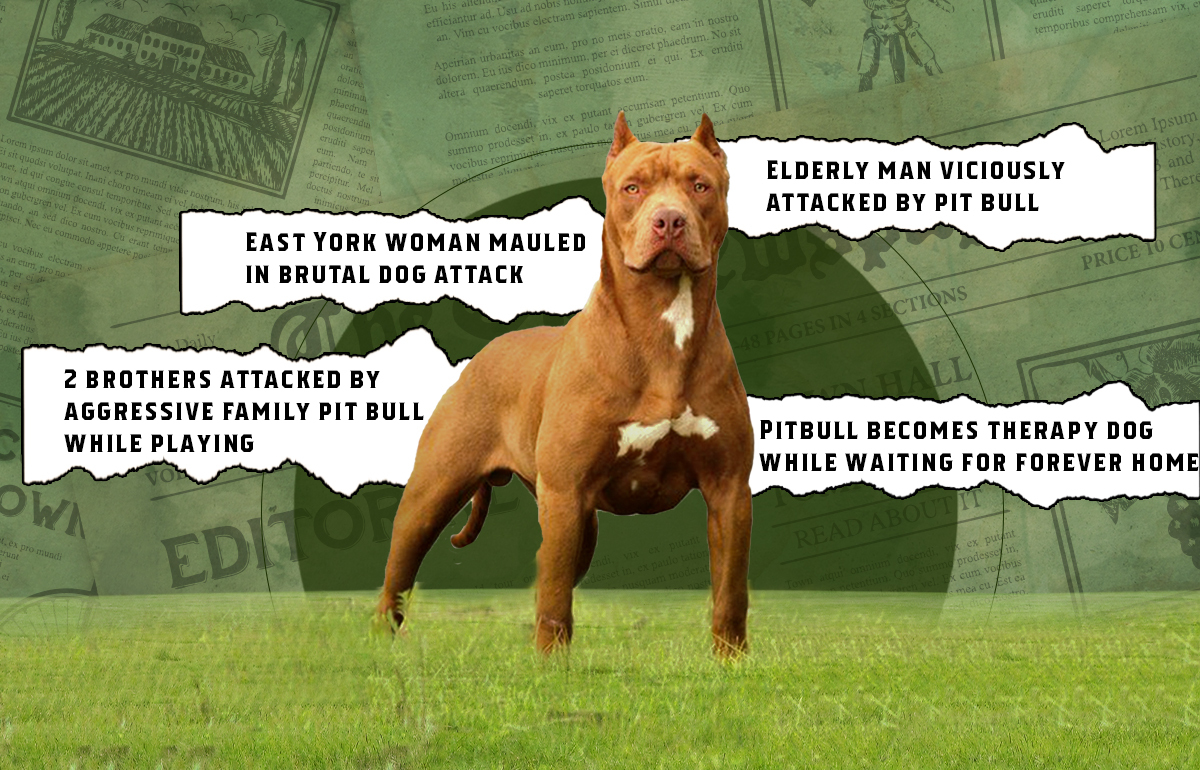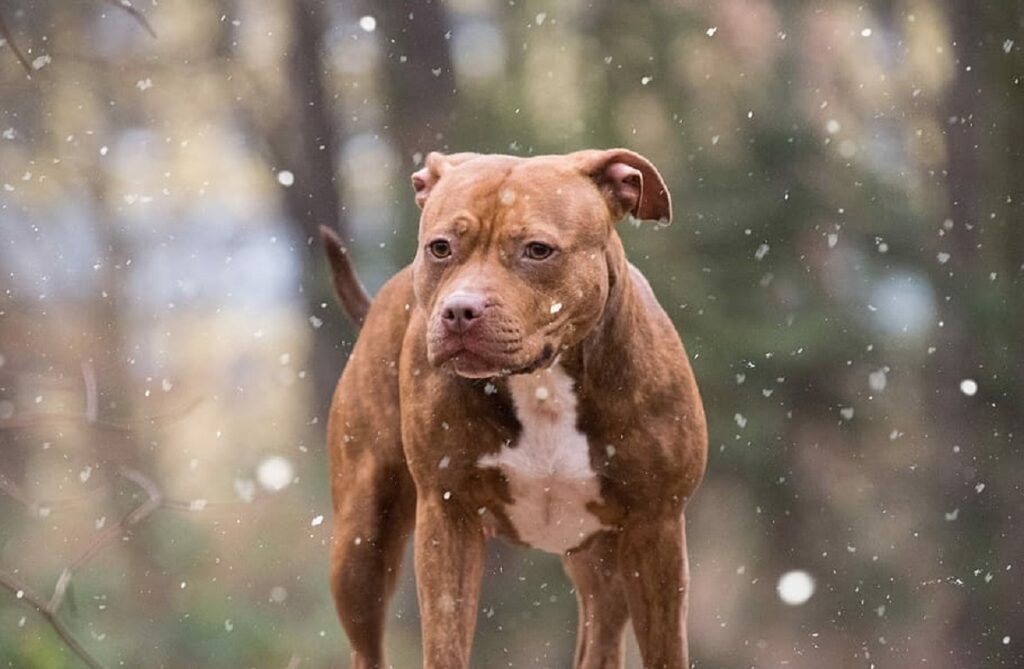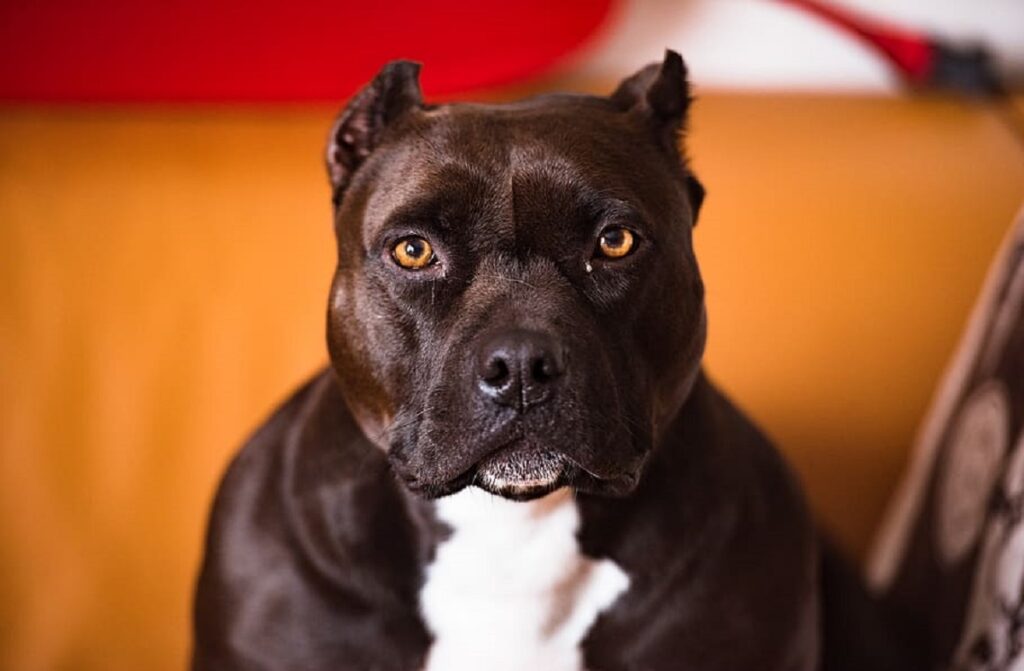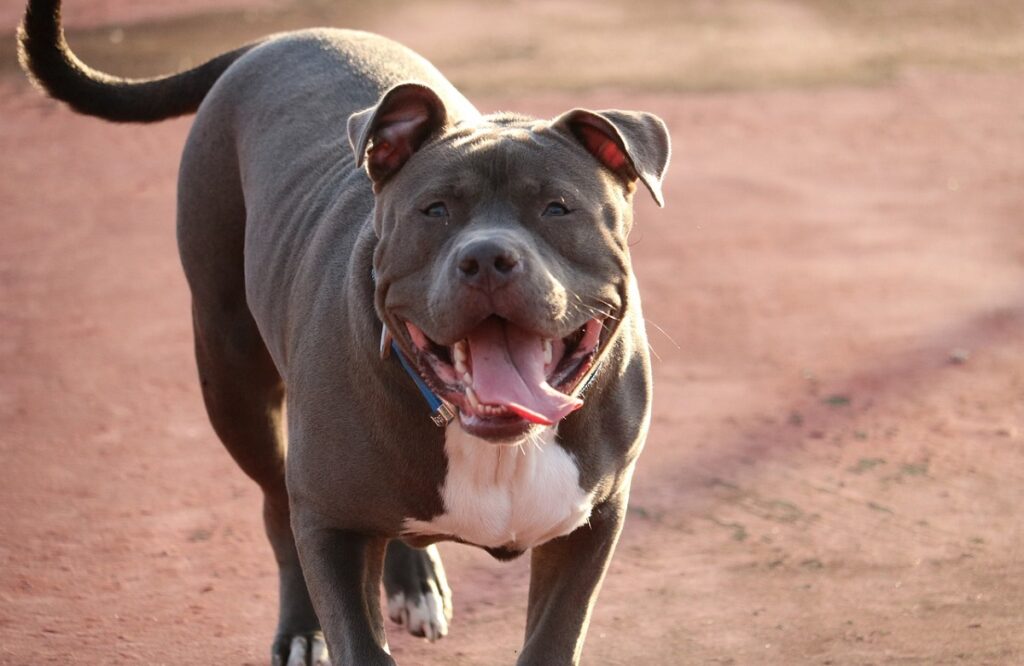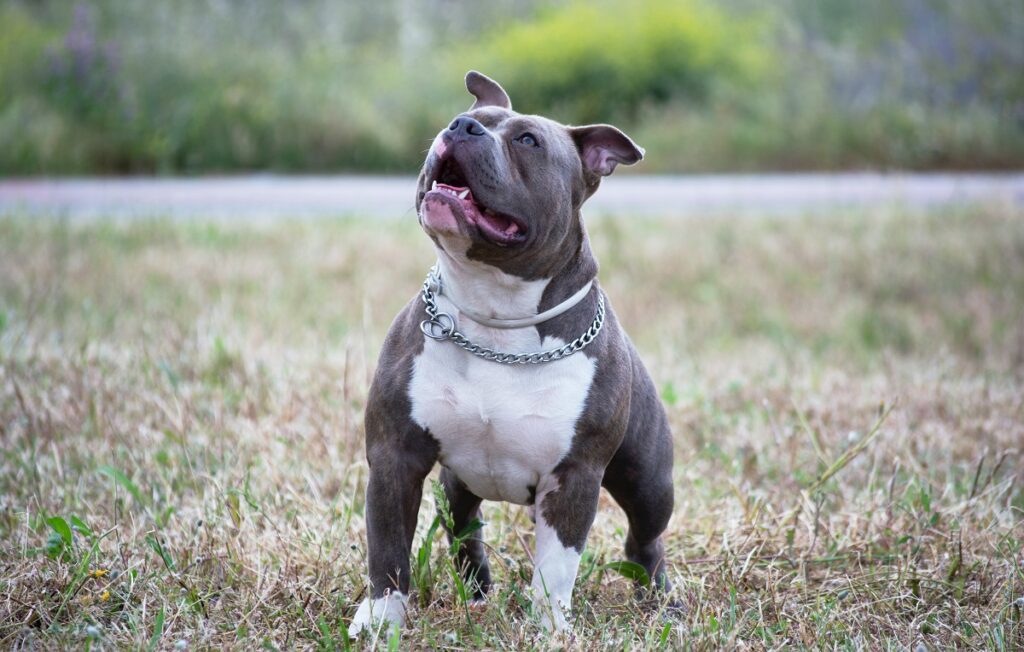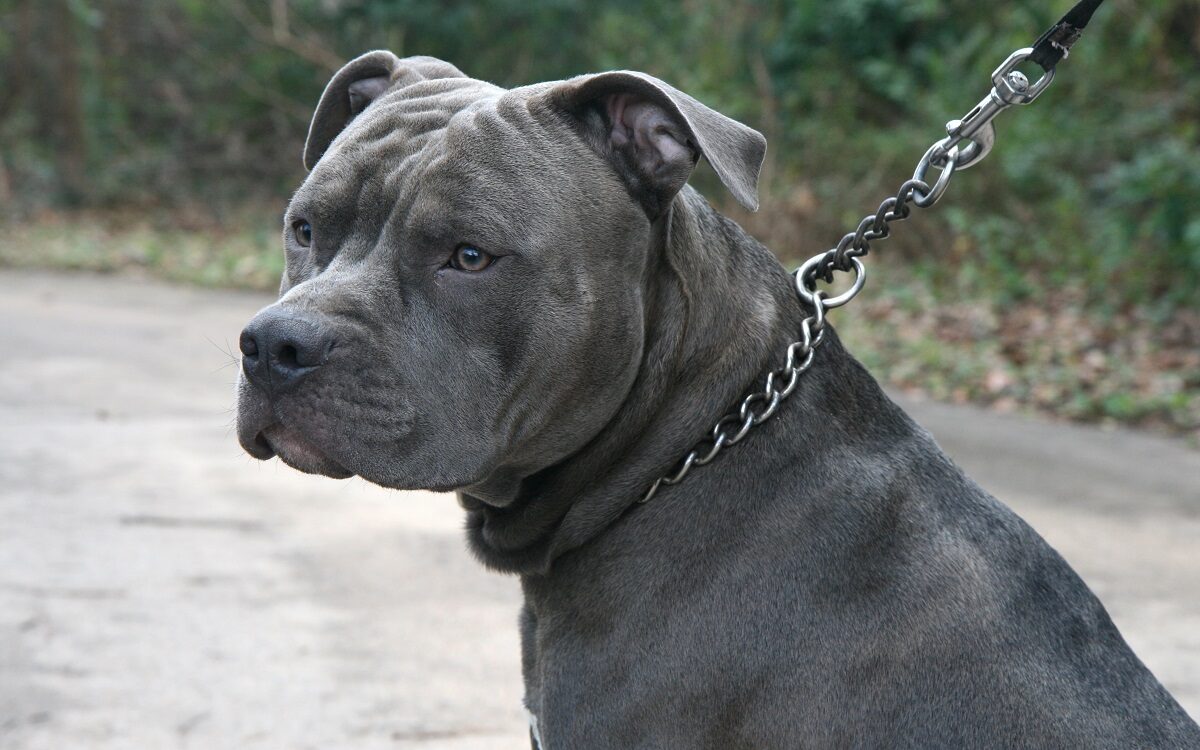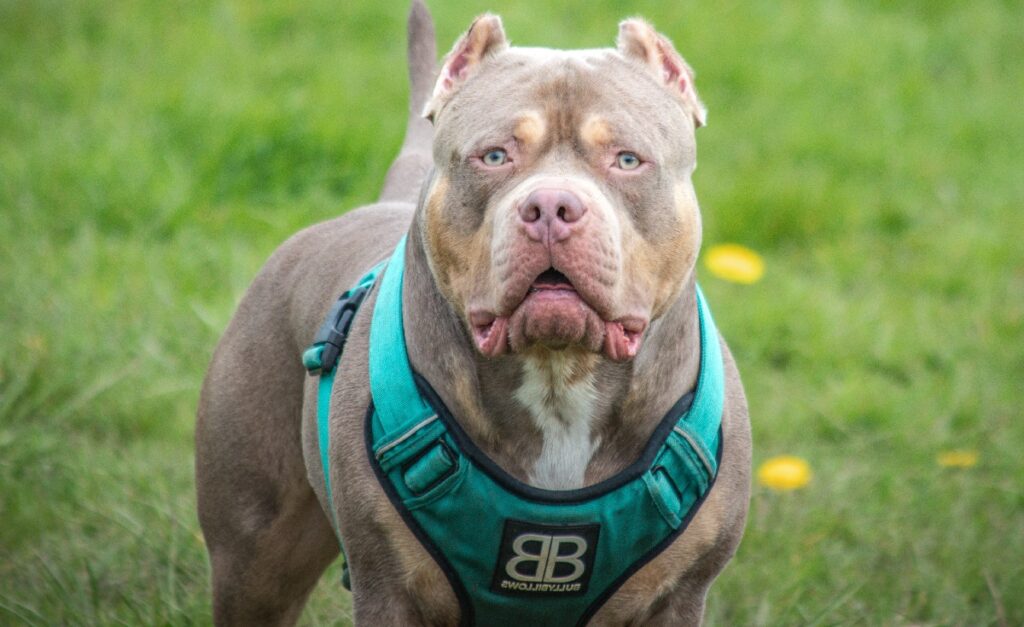Pit bulls: often demonized, frequently misunderstood. Are they inherently dangerous, or victims of reputation? This exploration delves into the truth about pit bull nature, separating fact from fiction. We’ll examine their genetic predispositions, the impact of training and environment, and the role of media sensationalism in shaping public perception. By understanding their true nature, we can dismantle harmful stereotypes and promote responsible ownership, paving the way for a safer and more informed coexistence.
Stereotyping never solves debates. Are pit bulls dangerous? That depends on many factors. The first thing people must recognize is that canines can become aggressive, even if we love them to bits, including breeds like a German Shepherd, Rottweilers, and our most beloved Labrador.
There’s a ton of evidence that points to breed-specific data, types of pit bull owners, and dog bite statistics and fatalities in pit bull attacks. In reality, a pit bull isn’t a dog breed. Instead, it’s a group of medium and large dogs that contribute to the pit bull problem.
However, pit bulls are the poster child for dog bite fatalities, leaving other dogs with aggressive behavior and inherently dangerous qualities off the hook.
Are Pitbulls Dangerous
American Staffordshire Bull Terrier (American Staffordshire Terrier), American Pit Bull Terrier, American Bully, American Bulldog, Blue Nose Pit Bulls, and mixed breeds from those dog breeds are considered dangerous animals. Blaming the non-existent pit bull breed is part of the problem.
Dog bite victims and the authorities tracking these events can’t always identify the specific breed, which compounds the problem and skews statistics.
Pit bulls or pitbulls have other names like Pitty, American Bully, Staffy, or Pit Terrier. It’s remiss to suggest some dogs from this category haven’t attacked, injured, mauled, or caused any deaths.
Despite many states outlawing dogfighting and violent organizations that host these barbaric events, many dogs are still bred to fight.
Danger Associated with Pit Bulls
The vast majority have a decided opinion on the dangers associated with pit bulls. Some studies contradict each other and find that pit bull breeds aren’t more aggressive, while others blame specific and stereotypical pit bull breed owners.
Pit bulls have a powerful grip and the body mass to anchor the bite. It’s what made this breed so effective in dog fighting rings.
Pit bulls, like all dogs, have needs like:
- Regular physical and mental stimulation
- Training for obedience, boundaries, behaviors
- Understanding their role
- A secure, enclosed space
Statistics about pitbull attacks or bites aren’t always tallied on exact parameters. If a pit bull breed bites, the wound is significant and reported. If a Yorkie or mini poodle bites, no one is running to the doctor.
Pit bulls are Unpredictable
It’s a fact: any dog can become unpredictable depending on unique circumstances, and ‘some’ dogs inflict serious and even deadly damage. One camp would like to see pit bull breeds euthanized and illegal to own. Others, including experts, suggest that pit bulls are no more or no less unpredictable.
Dogs are sentient beings and react to pain, stress, fear, or other significant triggers. Experts suggest reading a dog’s signals and body language is key, but explain that to a child walking toward an overzealous pitty.
What’s predictable is the outcome. Pit bulls have a bite force and determination to inflict damage. This aggression appeals to the circuit that promotes pit fighting.
Were Pit Bulls Bred for Aggression?
Another fact that tends to taint pit bulls is their past. Centuries ago, dog fighting, bear and bull baiting were popular entertainment venues. These old dog breeds were used to attack wild animals chained to posts (humans are so disgusting) for entertainment. More recently, we had the Michael Vick dog-fighting scandal.
Breeders advanced certain genetic factors and traits in these pit-fighting dogs for a reason.
Then there’s the lovely myth of nanny dogs. Yes, decades ago, people used pit bull breeds to guard their children while they were away working. Before media attention distorted their image, pit bulls were gentle and loving playmates for children.
So what turned the tables from keeping pit bulls as nanny dogs to becoming dogs with a criminal past? Perhaps there is a common denominator that influences how pit bulls turn bad.
A Pitbull’s Upbringing Matters
A common denominator with some pit bull owners is that this particular breed helps them project an image or social status. Others jump on the bandwagon to save these dogs because they identify with the underdog.
A dog’s behavior can be traced back to their upbringing. Genetic markers in a breed, which makes them appealing to us, influence the dog’s personality and traits. Dogs, true to their wolf-pack history, need boundaries. They follow the rules set by their alpha.
Consistent training plays a key role, as does socializing and positive but firm behavior modifications. Sometimes, that means hiring a professional to correct the problem we’ve allowed to develop.
Does a Pitbull Make a Good Family Dog?
Yes, they can make wonderful family dogs, and there are thousands who will testify that their family pitty is loving, affectionate, and shows no signs of aggression. These dogs are valued family members. They aren’t abused, provoked, neglected, or chained to a stake and provoked into dog attacks.
After Hurricane Katrina, rescuers encountered many sweet and docile pit bulls. They also discovered the “bad” pit bull type in the aftermath. These dogs drowned because their owners chained, abandoned, and neglected them.
Are Pit Bulls Good with Children?
For anyone who wants to hear that pit bulls are good nanny dogs, they aren’t going to hear it here. You should never leave a child alone with any dog—ever. However, many pit bull owners report that their family dog is affectionate and gentle.
You should know many organizations, including PETA, don’t see pit bulls as the misunderstood breed some advocacy groups believe they are. PETA firmly believes pit bulls are aggressive and may not show signs before an attack.
PETA supports breed-specific laws and wants to see more pit bulls sterilized and the breed outlawed.
Pit Bull Breed-Related Laws
PETA supports breed-specific legislation and wants to see more pit bulls sterilized. The ASPCA endorses this stance by hosting free sterilization campaigns to solve another issue pit bulls face. Animal shelters battle abandoned, rescued, and lost dogs, and 63% are from the pit bull family.
People on both sides of the argument promote spay and neuter, but some suggest that only licensed breeders should be allowed to breed pit bulls—weird since puppy mills can also be licensed, and a license doesn’t make you a caring dog breeder.
Although there are many contested breed-specific laws, and many organizations strive to ban pit bulls permanently, it’s having the opposite effect on the pit bull dog population. Instead of decreasing, pit bull-type pets have increased.
Pitty breeds rose by 24%, while the long-time favorite Labrador Retriever fell by 17% in popularity. Based on DNA data, out of 90 million dogs, pitbull-type dogs (mixed breeds) are the #1 breed in America.
Breed-specific laws don’t necessarily protect innocent people from vicious dog attacks. The American Bar Association asked for the law repealed in 2012, as it doesn’t improve public safety and creates a false sense of security.
Canadian researchers discovered the incidence rate of dog bites had no bearing on municipalities with or without breed-specific laws. The Netherlands repealed its laws banning pit pulls as it was ineffective in preventing a dog attack.
Myths Associated with Pit Bulls
As a former Doberman Pinscher pet parent, I know all about discrimination and how the media can distort our perceptions. Dobbies always get the leading role in Hollywood when they cast vicious guard dogs.
My last Dobbie, Bounder, guarded one thing: his ball (not very aggressively). My four dogs were affectionate, smart, and fun, and I trusted them to protect me (as long as the robber didn’t bring peanut butter). I also invested my time in their well-being and behavior. However, I wasn’t ignorant to the fact that originally, Doberman Pinschers were specifically bred as fierce guardians and to be intimidating.
Pit bulls and other breeds were used in a dog fighting operation syndicated that dates back centuries. Pet owners can’t ignore that despite a pitty’s gregarious grin, they can harm kids.
Pit bulls come with a legacy filled with myths that are based on fact and speculation and oodles of misdirected hate. Advocates for banning and eradicating pit bulls are motivated by personal tragedy or misinformed by academic frauds like Merritt Clifton, who has been discredited for misrepresenting facts for the research he taunts as valid in pit bull attacks.
Merritt Clifton appears to have his own agenda and is used as a resource in public safety campaigns and specific breed laws. However, at Pet Yolo, we support legitimate data from both sides of the debate—just don’t make stuff up.
- Jaws that lock: Pit bulls have the same jaw mechanics as other canines.
- Pit bull is a breed: Not true. There are four registered breeds and many mixed bull breeds.
- Not compatible with other dogs: Multiple dog households are difficult for most breeds. Proper training, socializing, obedience, and exercise are key, and many pitties have canine siblings.
- Only drug dealers and gangsters own pit bulls: Also false, as many distinguished people like doctors, teachers, and politicians own pit bulls.
- Pit bulls are overtly aggressive toward people: Another falsehood. Pit bulls exhibit the same response to people and children as other dogs, and their aggression and behavior result from abuse, neglect, and improper training. Pitty owners love their gentle dogs because they’re loving.
- Pitties think children are prey: History of the breed suggests they’re gentle toward children. However, they have a strong prey instinct, and some dogs may not like smaller dogs or cats.
- Pitties have the strongest bite: Many other dogs have a stronger bite force.
- Pit bulls believe dog fighting is mean: True. However, obedient dogs can be trained to behave aggressively by unscrupulous people who run dog fighting operations and host dog fights.
Remember that a puppy’s personality and temperament are programmed before 16 weeks. Positive exposure to sounds, handling, different environments, and people and children can shape a dog.
Things to Consider Before Owning a Pitbull
Ceasar Milan, Helen Keller, Jennifer Aniston, Betty White, Kevin Bacon, and other celebrities endorse pit bulls. So, do you have the gumption, tenacity, and unwavering sense of responsibility to parent a pitty breed?
Pit bull attacks are preventable. Recently, a woman in London, UK, was mauled by three pit bulls in a horrific attack. What should have been the headline is, “Callous Irresponsible Owners Leave Scene of Crime.”
Ask yourself:
- Do you have time to train a high-energy dog?
- Is your property secure without an escape?
- Can you ensure your dog will have a proper license, tags, microchip, and a collar suitable for a strong dog?
- Can you afford the liability insurance?
- Are you able to cover medical bills?
- Can you read body language and aggression cues in your dog and other dogs?
- Is getting exercise important to your current daily lifestyle?
- Who else shares your living space? A cat, a small dog, or a potential roommate?
- Do you have a backup plan for your prospective dog if you can’t provide for it?
- Can you commit to a puppy and adult dog training course?
- Are there breed-specific laws that can affect pet ownership where you live?
- What is your motivation for owning or rescuing a pitty?
- Does your future include changes to your current domestic situation?
- Are you strong and calm enough to break up a dogfight?
- How thick is your skin? You’ll likely be shunned or have to listen to rude comments.
FAQs
Pitties sure have a bad rap, but the current pit bull population numbers suggest we adore them. They can be awesome family dogs like Golden Retrievers, Toy Poodles, Frenchies, and other popular dog breeds.
Is a Pit bull the Most Aggressive Domesticated Dog?
It depends on who you ask. Cane Corso, Rottweilers, German Shepherds, Chow Chows, Rhodesian Ridgeback, and yes, my Dobbies have also made the list. The rise of designer breeds and dog breeders who don’t promote the best characteristics only adds fuel to the fire.
Pit bulls can have aggressive tendencies, as can chihuahuas, but stats suggest they’re responsible for 68% of dog attacks (1982).
Are Pit bulls Illegal to Own?
In recent years, it’s become illegal in some states, cities, or counties to own pit bulls and any other dog deemed aggressive as family pets. Always check with local authorities about the legalities of owning a breed that falls under the breed-specific umbrella. That can include mixed breeds of a certain pedigree or other dogs like Cane Corso that can bite people.
The UK, Canada, and the USA have very stringent breed-specific laws after many pit bull attacks and the severity of pit bull bites came to light.
Is Owning a Pitbull the Right Choice?
Only you can answer that. Stereotyping one breed or group is irresponsible and leads to bigger problems. If you can commit to owning an active and highly intelligent breed, you’d help many shelters overrun by abandoned or confiscated pit bulls. If you’re a first-time dog owner, rethink your qualifications.
Owning a dog is a lifetime commitment. No do-overs.
Conclusion
My Dobbies would rather lick my face than bite me. However, when I played with them, I sometimes bore the brunt of their hard heads and sharp teeth. Contact hurt, and I can’t imagine the injuries those accidents could have caused a child, regardless of the intention.
Pit bulls are targeted, and statistics are hotly debated. Many cry for tougher dog ownership regulations; others want these breeds euthanized and permanently wiped off the face of the earth. Many more are trying to save as many of these breeds as humanely possible.
If you’re interested in owning a dog, volunteering at a shelter is a great place to start.
Disclaimer: This article contains certain opinions and viewpoints that solely belong to the author. The World Animal Foundation supports our writers’ content, but certain individual opinions expressed in this article remain the author’s responsibility, and Pet Yolo should not be held accountable for them.
The question of pitbull dangerousness isn’t easily answered with a simple yes or no. While their powerful physique and bite strength are undeniable, aggression is not inherent to the breed. Decades of irresponsible breeding, training for fighting, and media sensationalism have contributed to their negative image. Like any dog, a pitbull’s behavior is primarily influenced by environment, training, and individual temperament. Focusing on responsible ownership, dispelling myths through education, and promoting breed-specific legislation based on individual behavior rather than breed alone, are crucial steps toward ensuring both public safety and the fair treatment of these often misunderstood dogs.

